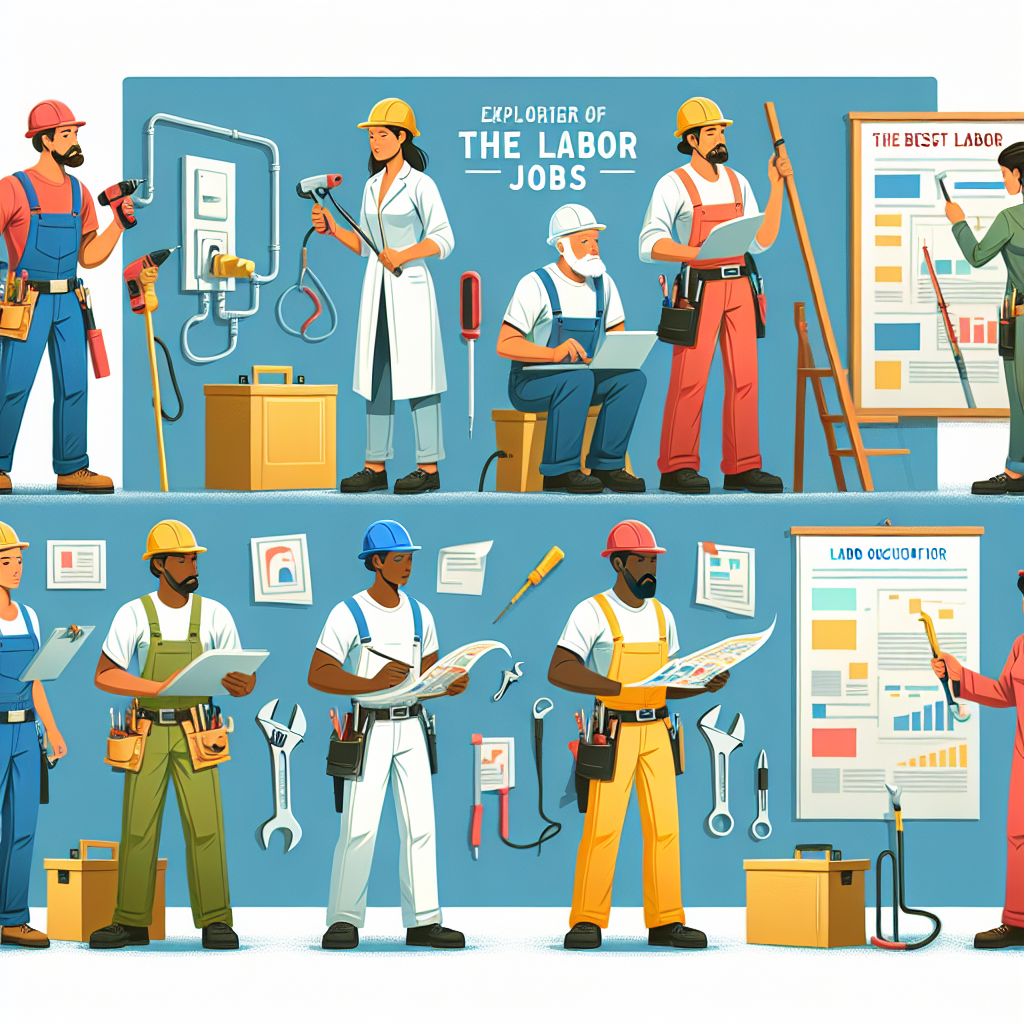Exploring Best Labor Jobs: What It Means For You. Choosing the right labor role can shape your daily routine, earnings, and long-term opportunities. Whether you’re entering the workforce, shifting careers, or advising students, understanding practical job options, training pathways, and workplace realities helps you make confident decisions.
Why labor jobs matter today
Labor jobs—often called skilled trades, blue-collar work, or manual occupations—remain essential to every economy. They cover construction, manufacturing, transportation, maintenance, and service trades. For many, these roles offer steady demand, clear routes to certification, and the ability to start earning without a four-year degree. They also present opportunities for apprenticeships, entrepreneurship, and rapid advancement into supervisory or technical specialties.
Exploring top labor jobs and what they mean for your career
Some labor jobs stand out for growth potential, pay, and transferability across regions. Examples include electricians, HVAC technicians, heavy equipment operators, welders, and commercial drivers. These positions combine hands-on skill development with on-the-job training or short-term certificate programs. They often come with strong union representation or industry associations that help with training and job placement.
Key factors to weigh
When evaluating labor roles, consider:
- Training time and cost — certificate vs apprenticeship vs community college
- Physical demands and workplace environment
- Long-term earnings and benefits
- Local demand and portability of skills
- Opportunities for overtime, certifications, and ownership
How to find training and entry points
Start by mapping the credential path for the occupation you’re interested in. Apprenticeships are valuable because they combine pay with training; many industries maintain formal programs with employer partners. Community colleges and vocational centers offer accelerated certificates. For college students balancing study and work, targeted job boards and local employer partnerships can link short-term work with relevant skill-building—see a helpful resource that explores where students can find paid and free job board options: the ultimate guide to job boards for college students in the USA (free and paid options).
Safety, ergonomics, and long-term health
Physical work requires attention to safety standards and ergonomics. Employers are responsible for training and protective equipment, but workers should also know best practices to prevent injury and career-limiting wear-and-tear. Consider roles with reasonable accommodations or rotational tasks if you have concerns about repetitive strain.
Economic context and job outlook
Understanding labor market trends helps you choose a sustainable path. For example, construction and skilled trades often follow local development cycles, while logistics and utilities are more stable. For occupation-specific outlooks and employment data, consult authoritative sources like the Bureau of Labor Statistics overview of construction and extraction occupations, which provides projections and industry context: BLS construction and extraction occupations information. That kind of data can guide decisions about training investments and geographic mobility.
Earnings and advancement
Many labor jobs offer clear pay progressions tied to certification levels, experience, and union-negotiated scales. Entry-level roles may start modestly but can escalate quickly with overtime, specialized skills (e.g., pipefitting, instrumentation), or licensing. Supervisory roles and small business ownership (e.g., contracting, HVAC service) present paths to significantly higher income.
Practical checklist before you commit
- Identify local demand by checking job postings and talking to employers.
- Calculate training costs and expected time-to-earnings.
- Check licensing or certification requirements in your state or region.
- Assess physical and scheduling expectations (shift work, outdoor conditions).
- Explore apprenticeship and employer-sponsored training options.
Frequently asked questions
Q: Can I start a labor job without a college degree?
A: Yes. Many high-demand labor roles require certificates, apprenticeships, or vocational training rather than a four-year degree. Entry pathways vary by trade.
Q: Are labor jobs still well-paid long term?
A: Many labor careers offer competitive pay, especially once you obtain certifications or specialize. Trades like electrical, plumbing, and certain construction specialties often yield strong lifetime earnings and benefits.
Q: What if I want to move into management later?
A: Hands-on experience is valuable for management in trade environments. Combining field experience with short supervisory or business courses can prepare you for crew leadership or running your own firm.



